About Us
No Ordinary Fish. No Ordinary Year.
Eiko Jones Photography
What is the International Year of the Salmon?
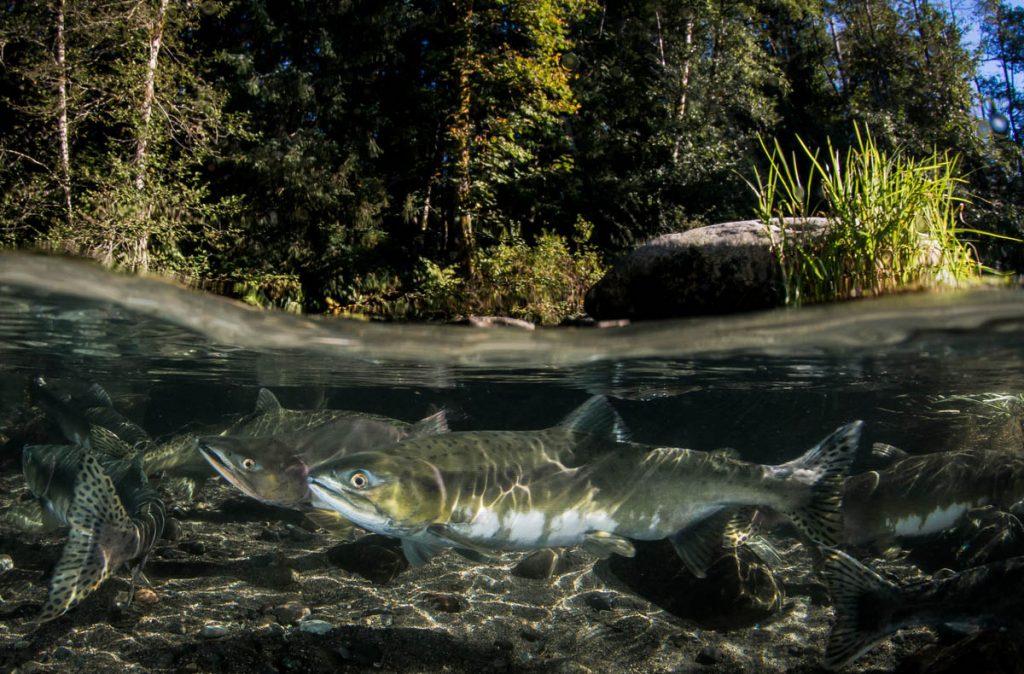
Eiko Jones Photography
The International Year of the Salmon (IYS) is a five-year initiative that aspires to establish the conditions necessary to ensure the resilience of salmon and people throughout the Northern Hemisphere. While salmon have a high degree of resilience built into their genetic make-up, increasingly extreme and uncertain climate conditions, coupled with continuous human activity, threaten their survival. Epic salmon migrations through rivers and oceans take salmon across borders and cultures, sustaining this species therefore requires a uniquely large-scale solution.
To support the resilience of both salmon and the people who depend on them, we need to collectively generate and share new knowledge, make timely decisions, and engage communities in this effort. The IYS has a number of research themes and outcomes that describe the conditions to establish resilience for salmon and people, and have initiated a series of Signature Projects that will make significant progress towards these outcomes. Success is ultimately a hemisphere of connected people and organizations taking effective action to understand and sustain salmon.
We are governed by the North Pacific Anadromous Fish Commission (NPAFC) in the North Pacific, and the North Atlantic Salmon Conservation Organization (NASCO) in the North Atlantic, and our staff are located at the offices of the Commissions in Vancouver, Canada and Edinburgh, Scotland, respectively. We have engaged steering committees with our parties and partners in our respective basins, in the NP we have 40 partners collectively working with the IYS (link to governance). Funding for IYS activities has come from the parties as well as contributions both in kind and cash from our partners.
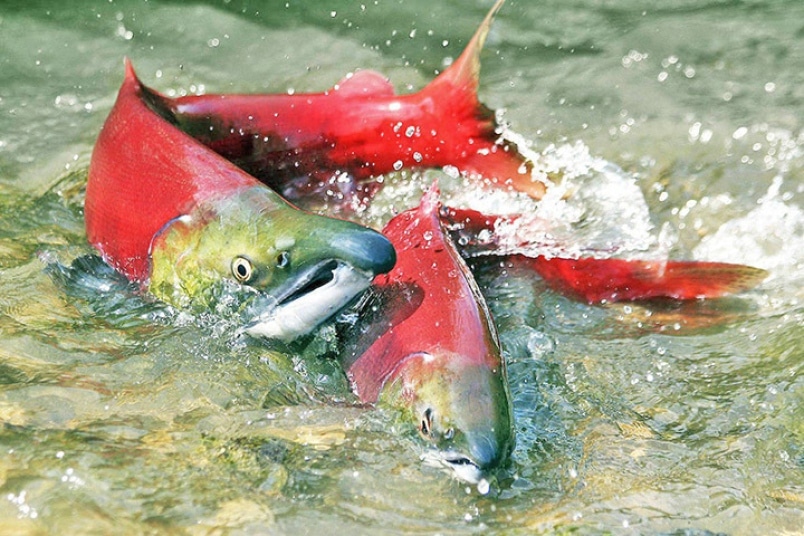
Eiko Jones Photography
The International Year of the Salmon has multiple research themes that describe the conditions to establish resilience between salmon and people.
International Year of the Salmon Objectives
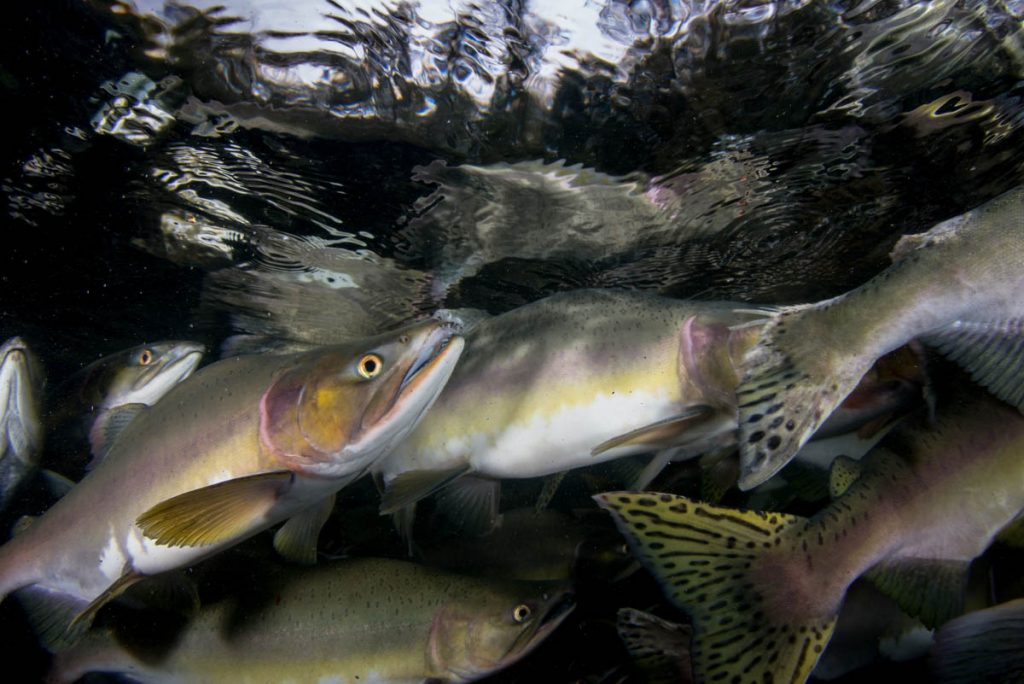
1) Develop a better understanding of the factors driving salmon abundance and the challenges facing them;
2) Encourage scientists, decision-makers and the public to work towards solutions that overcome the challenges salmon face;
3) Support conservation and restoration strategies to help manage salmon in the face of climate change;
4) Enable collaboration among organizations and researchers in countries throughout the Northern Hemisphere;
5) Inspire and support a new generation of researchers and managers, and conservationists;
6) Help create a greater awareness of the ecological, social, cultural and economic value of salmon;
7) Support research and conservation of salmon species and their environments throughout the Northern Hemisphere.
Meet the IYS Team:

Mark Saunders
Mark Saunders currently works for the North Pacific Anadromous Fish Commission as the Director for the north Pacific Region of the International Year of the Salmon initiative. He retired several years ago from the Canadian Department of Fisheries and Oceans where he headed up a Salmon, Aquaculture and Freshwater Ecology Division at the Pacific Biological Station in Nanaimo, B.C. with staff working on salmon stock assessment, freshwater habitat, molecular genetics, fish health, and marine ecology. The early part of Mark’s career focused on stock assessment of marine fish as well as research related to hydroacoustic surveys and fisheries oceanography of the California current system. Mark and his wife live in the small town of Chemainus on Vancouver Island. He has two grown daughters in their 20’s. In his spare time, Mark enjoys sailing, kayaking, skiing, and sport fishing.
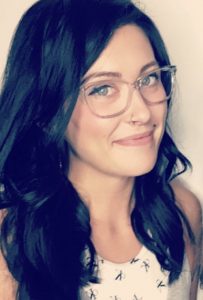
Camille Jasinski
Camille Jasinski is the IYS Public Relations and Communications Manager for the International Year of the Salmon (IYS)—North Pacific Region. She is currently completing her master’s degree in communications at SFU (Simon Fraser University), after which she hopes to pursue her PhD. Camille’s graduate research interests include classical communication theory, ideology, philosophy, surveillance culture, environmental communication, decolonization theory, and Indigenous rights. Camille currently sits as the Co-chair to the IYS Theme Council Group 4—Outreach and Communication. She is also a registered 200-hour yoga and fuse instructor.
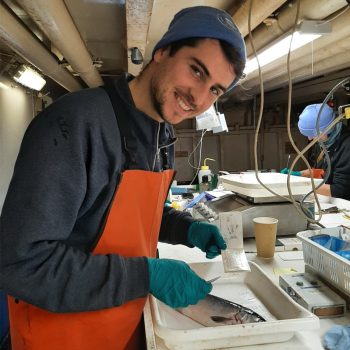
Aidan Schubert
Aidan is the International Year of the Salmon (IYS) High Seas Coordinator for the North Pacific Anadromous Fish Commission. His role involves coordinating the IYS Data Mobilization and Likely Suspects Framework Signature Projects with partners from across the Northern Hemisphere as well as supporting the NPAFC Working Group on Stock Assessment and assisting with the coordination of the IYS 2022 Pan-Pacific Winter High Seas Expedition and related activities. Aidan has a Bachelor of Science and Masters of Biological Science, specializing in marine biology, from the University of Western Australia and completed an exchange semester at the University of Ottawa. Aidan’s work experience has ranged from environmental and marine science consulting roles, including marine turtle monitoring, work as a Research Assistant with the Western Australian Department of Fisheries and marine science education at the Bamfield Marine Sciences Centre, Canada. Aidan is very excited to participate in the Raw Spirit leg of the 2022 Expedition to be directly involved with the research that is being undertaken through the IYS High Seas Expeditions, to compare results with the 2019 and 2020 Expeditions and to be part of a historic and adventurous journey!
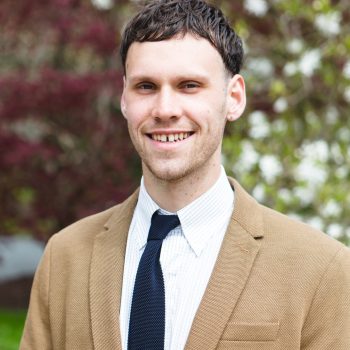
Tor Kitching
Tor Kitching is the International Year of the Salmon (IYS) Coordinator for the North Pacific Anadromous Fisheries Commission. His role involves coordinating the IYS Working Group and the IYS Synthesis Symposium, providing coordination support for the Symposium Steering Committee and monitoring the IYS budget. Tor has a Bachelor of Science in Marine Biology and Oceanography and a Master of Science specializing in aquatic life history from Dalhousie University. Tor began his scientific journey from a young age on the coasts of Norway to working at the Algonquin Wildlife Research Centre as a teenager doing bird and wildlife surveys for Guelph University. Between his time in undergraduate and graduate school, Tor has studied life at different scales from marine microbes to fish, and across the globe from Norwegian Atlantic Salmon to Daisy parrotfish from Guam. His Masters was focused on statistically modelling the maturity transitions and how they may change under climate change. Tor hopes to use his expertise to help coordinate the many research groups involved in the IYS and bring them together at the IYS Synthesis Symposium to help inform a roadmap to 2030.
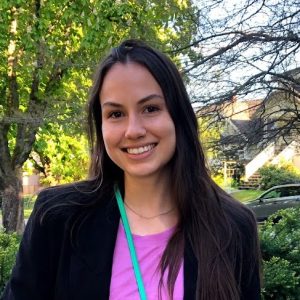
Polina Orlov
Polina Orlov is the North Pacific Anadromous Fish Commission (NPAFC) intern. Her role involves assisting the IYS team on a variety of tasks, such as helping to coordinate and review the outcomes of the IYS Synthesis Symposium. Polina recently obtained a Masters of Oceanography degree from the University of British Columbia (UBC). The focus of her research was on salps (Salpa aspera) and other pelagic tunicates. In particular, she examined how these organisms contribute to organic matter export from the surface to the deep ocean and the quality of food they provide to their predators, such as pelagic fish, turtles, marine birds, and crustaceans. Previously, she worked in a research lab doing salmon diet analysis to help understand what juvenile pink and chum salmon are eating on their journey from the Fraser River. Outside of work, Polina often enjoys hiking and skiing in nearby BC mountains, as well as cooking dinner with friends.
Your Events & Projects
This is your chance to join like-minded people across the Northern Hemisphere to make a difference.
Register your salmon events or projects with us.
